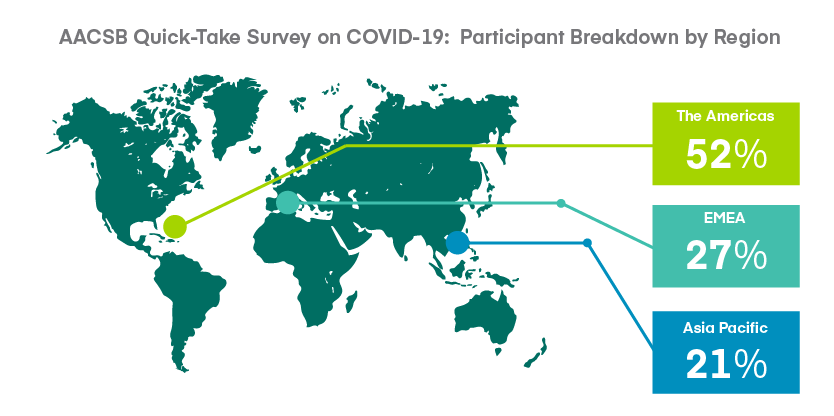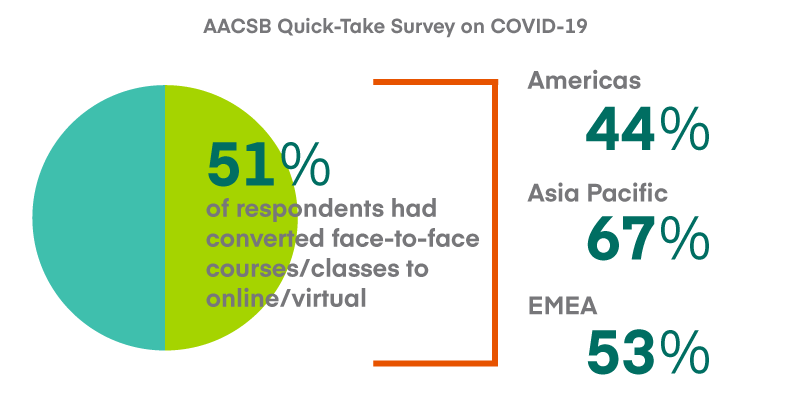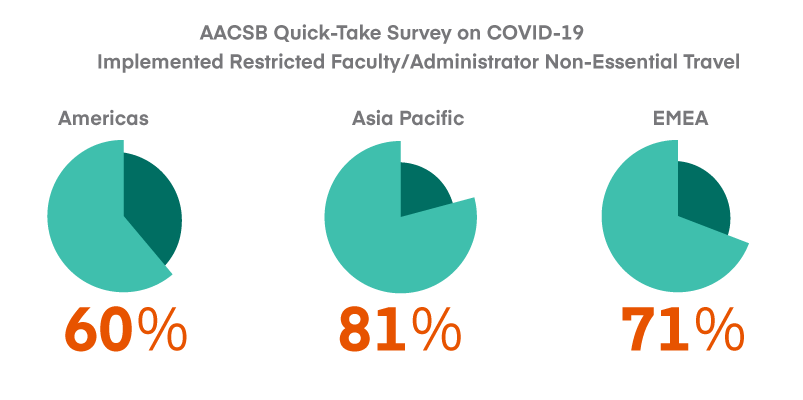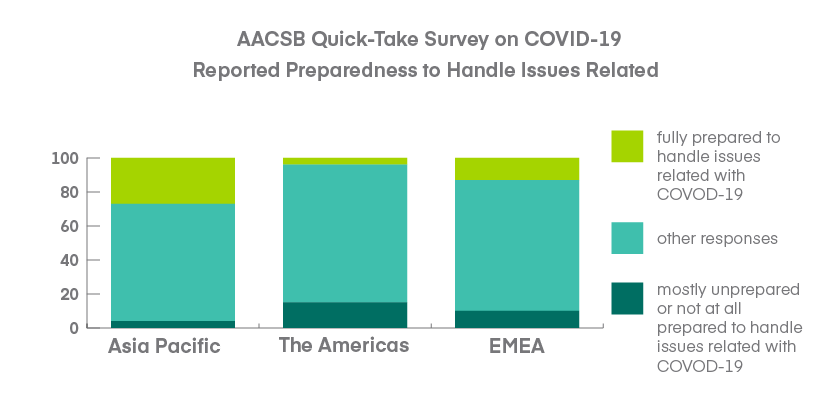AACSB Quick-Take Survey on COVID-19: Initial Findings
Last week AACSB launched a quick-take survey on COVID-19 (a form of coronavirus) to better understand the impacts that the spread of COVID-19 has had on AACSB member schools. Although the situation that schools are facing remains fluid and changing daily, the results provide insight to the impacts schools have been facing as of March 9–13, 2020. We would like to thank all the representatives from member schools who participated in the survey during this challenging time.
A total of 437 individuals participated in the survey, with 52 percent representing the Americas region, 21 percent from Asia Pacific, and 27 percent from Europe, the Middle East, and Africa (EMEA).

At the close of the quick-take survey, we learned the following actions have been taken by AACSB schools:
Student-Related Actions
- 24% of respondents had postponed courses/programs; 11% had canceled courses/programs
- 51% of respondents had converted face-to-face courses/classes to online/virtual; 67% of respondents in Asia Pacific had done so, 53% in EMEA, and 44% in the Americas
- 71% of respondents had canceled or postponed student travel (e.g., study abroad), with 77% in the Americas, 60% in EMEA, and 71% in Asia Pacific
- 7% of respondents had reduced expected intake of students for the current semester, with 18% of respondents in Asia Pacific, 7% in EMEA, and 3% in the Americas
- Across all regions, the most common action taken in response to reduced student intake is to defer enrollments to the next term

Personnel-Related Actions
- 68% of respondents had restricted faculty/administrator non-essential travel, with 81% of those respondents in Asia Pacific, 71% in EMEA, and 60% in the Americas
- Respondents in Asia Pacific and EMEA are more likely to rely on national/governmental travel restrictions, while respondents in the Americas are more likely to cut all non-essential travel—both domestic and international
- 79% of respondents in the Americas had undertaken contingency planning, compared to 56% in EMEA and 66% in Asia Pacific
Campus-Related Actions:
- 7% of respondents in the Americas had undertaken health monitoring of visitors, versus 65% in Asia Pacific and 20% in EMEA
- 55% of respondents had canceled major events/gatherings hosted by the school

Overall Preparedness
- 27% of Asia Pacific respondents reported being fully prepared to handle issues related to COVID-19, versus 4% of respondents in the Americas and 13% in EMEA
- Of respondents who reported being mostly unprepared or not at all prepared, 15% are from the Americas, 10% from EMEA, and 4% from Asia Pacific

Please stay tuned for further insights gleaned from the quick-take survey on how AACSB schools are addressing the impacts presented by COVID-19.






